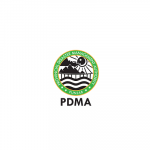Islamabad: The Federal Board of Revenue (FBR) has introduced Pakistan’s first-ever Artificial Intelligence (AI)-powered Customs Clearance and Risk Management System (RMS) to improve the efficiency, accuracy, and transparency of the country’s import-export operations.
Launched on the directive of Prime Minister Shehbaz Sharif, the AI-based system is designed to reduce human intervention in customs procedures, enhance risk assessment capabilities, and facilitate ease of doing business for traders across Pakistan.
The development was shared during a high-level meeting chaired by the Prime Minister on Monday to review FBR reforms and digital transformation initiatives. According to a statement issued by the Prime Minister’s Office (PMO), the new RMS will evaluate the cost and classification of goods during import and export using advanced algorithms and AI-powered bots.
Read: FBR details how overseas property buyers can avoid non-filer tax penalties
Promising Results in Early Testing
During its initial testing phase, the AI-based RMS demonstrated over 92% efficiency, with a notable impact on the clearance process. The system was able to determine 83% more Goods Declarations (GDs) for tax collection compared to the previous mechanism and enabled 2.5 times more GDs to pass through the green channel, significantly reducing clearance time for compliant shipments.
Officials noted that the system is self-learning and will continue to improve its performance through machine learning, adapting to evolving trade patterns and risks.
A Major Step Toward Digital Governance
“The new RMS brings transparency to customs operations, automates risk profiling, and minimizes the need for manual checks,” the briefing stated, adding that this will result in faster clearance, reduced costs, and a more predictable trading environment for the business community.
Prime Minister Shehbaz Sharif emphasized that reforming the FBR remains one of the government’s top priorities. “By automating the tax and customs systems, we are making them more transparent and efficient. This technology-driven transformation will improve revenue collection and provide convenience to taxpayers and businesses alike,” he said.
He also instructed that the system be made integrated, sustainable, and scalable, and praised the officers and developers involved in building the new platform.
Read: FBR collects PKR 11.7 tn in FY25, falls short of target
Video Analytics and Broader Tax Reforms
The meeting also reviewed other digital initiatives underway at the FBR, including video analytics-based monitoring to improve tax compliance in the manufacturing sector. Officials briefed the Prime Minister on how automated surveillance systems will help in real-time monitoring of production and help plug revenue leakages.
This system, which showed 98% efficiency in preliminary testing, is designed to automate tax recovery and minimize opportunities for underreporting. It is also expected to increase government revenue while making tax compliance easier for manufacturers.
As part of its broader reform agenda, the FBR continues to invest in low-cost, technology-led solutions to address inefficiencies, increase transparency, and align with global best practices in tax administration.







